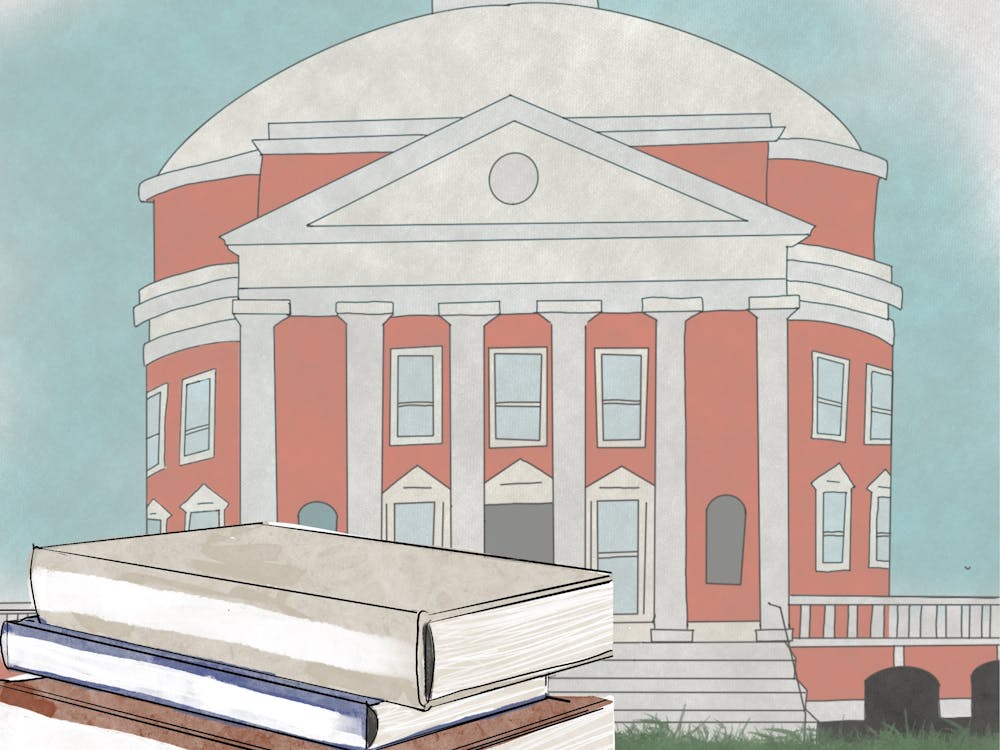Maury Hall was no more. After purchasing my ticket and walking into the crowded room, I was pleased to see Shakespeare On The Lawn had, for the evening, turned the the lecture space into their own personal theater. There, I would be swept up in fourth-year College student Robbie Richards’ production of “‘Tis Pity She’s a Whore” — a show I previously knew nothing about except for the few promotions I had seen around Grounds.
“Pity” is a mid-17th century play by John Ford which tells the story of a man who develops incestuous feelings for his sister. At the time the play was written, incest was considered too vile to even mention in the theatre — it wouldn’t start garnering serious critical attention until the 20th century.
Watching the show, I was not surprised it had been banned. The play’s sensitive themes created a palpable tension in the room whenever the protagonist, Giovanni (Ben Bott), and his sister Annabella (Emily Shelton) shared a kiss onstage. In the crowd around me, the most repeated words during the night were “ew” and “gross” — and several utterances of “oh my God.” I often joined in.
Still, Bott, a first-year College student and Shelton, a second-year College student, did a phenomenal job. Their performances as a brother and sister caught in a storm of emotion were incredibly powerful. Bott successfully captured the strain and depth of Giovanni’s character, which is both twisted and tortured. Shelton, meanwhile, showcased her emotional range, from the love she expresses for her brother to her fear of being discovered to her determination to lie to protect her secret. With frequent gasps and shudders coming from the audience, it was clear they were doing something very right.
Though the play is considered a tragedy, “Pity” produces numerous laughs. Bergetto and Poggio, played by University alumnus Drew Bowers and fourth-year College student Kate Tooley, respectively, provided the brunt of the show’s comic relief. Their most notable scene is when Bergetto attempts to read his love letter to Annabella — a task he cannot perform, because he cannot read his own handwriting. He then asks his servant, Poggio, to read this hilarious, poorly written letter aloud. Here and beyond, the dynamic between these two is superb, adding light-hearted wit to an otherwise heavy story.
Overall, SOTL clearly succeeds in pulling off such a controversial play. The audience’s investment in the story was wholly apparent — no doubt due to the production’s superb cast and talented artistic staff. The show promises to prompt significant discussion as audience members trickle out and return home — exactly as good theatre is supposed to do.




